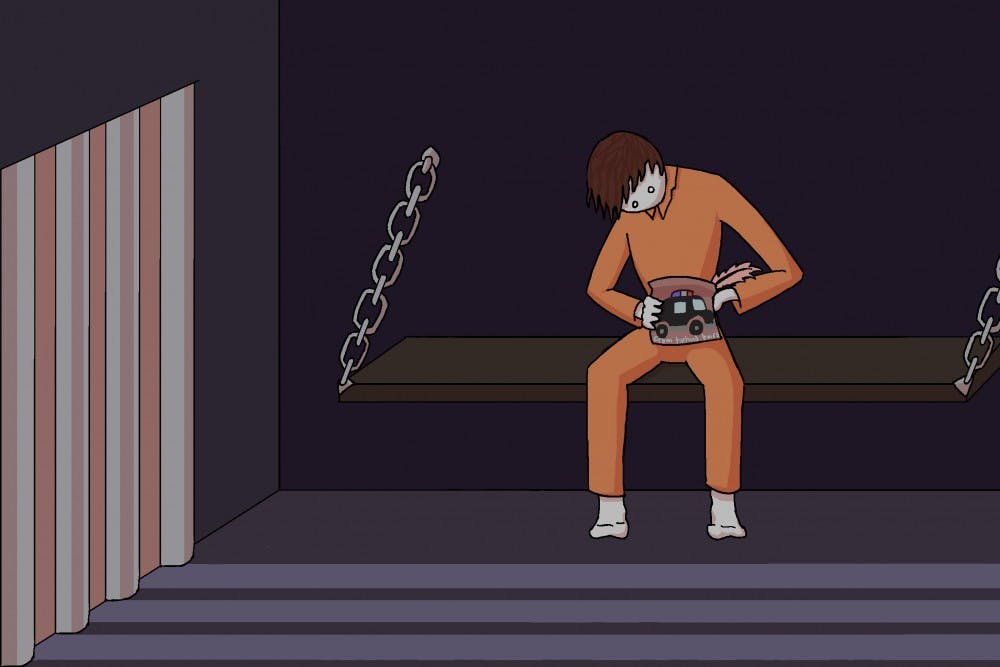Imagine that your only contact with the outside world — with your family, friends, current or prospective employers and teachers — was confined to a 6-by-4-inch space.
For inmates in Maricopa County jails, this isolating scenario is a reality. In 2007, Sheriff Joe Arpaio imposed a policy that restricts inmates to sending and receiving mail only in the form of postcards (with the exception of legal mail). Several other sheriffs around the U.S. have since followed Arpaio’s example and implemented similar restrictions.
The logic behind the postcard-only policy is that postcards reduce the flow of contraband in and out of jail facilities and save money by cutting the costs of mail screening. In effect, however, this policy burdens the very system it attempts to manage. When inmates cannot communicate with the outside world, they lose the ties they need to eventually reintegrate back into their communities.
Due to distance and inconvenient hours, regularly visiting a jail may be unfeasible for many families. With the costliness of telephone calls within jails, communication via telephone is another unviable alternative to written communication. In order for many inmates to sustain meaningful relationships with their family members, letters are critical. These meaningful relationships are, in turn, critical to successful reentry into society — after all, a lack of family support is linked to higher rates of recidivism.
Apart from communication with family members, letter writing can be important for inmates to seek out employment or educational opportunities.
It is crucial to remember that jails are short-term penal institutions. Those serving time in jail are either awaiting a trial, and thus presumed innocent, or are serving comparatively short sentences. With this in mind, we must ensure that inmates are able to maintain connections with their communities. Complete isolation is counter-productive to the so-called “correctional” process.
Jessica Fletcher’s experiences with ASU’s prison education programming reinforce how invaluable communication, community ties and learning are to many of those incarcerated. Fletcher is an ASU graduate with degrees in English and psychology who is currently pursuing a master’s degree in counseling in mental health.
Fletcher served as the president of the Prison Education Awareness Club at ASU for three years and as an intern for the Pen Project, an ASU program that allows students to give constructive feedback to incarcerated writers. She has also been a volunteer teacher in the prison system.
According to Fletcher, the ability to write letters is critical for incarcerated individuals.
“These writing forms are not only valuable but necessary,” Fletcher says. “I think that if we’re in the business of corrections, we should focus on correcting and rehabilitating. Severing ties to family emphasizes a punitive side, but it also severs the potential to correct, grow, engage.”
Many postcard-only policies have been struck down as unconstitutional in states including Oregon, California and Kansas. These policies fundamentally violate freedom of speech for inmates and their families. Postcard-only policies also unduly infringe upon communication privacy — anyone who's handed a postcard has unfettered access to the information written upon it.
As students, we should understand the importance of written communication as a source of education and empowerment. Our jails play an essential role in our society. However, restricting freedom of speech and inhibiting reintegration do not have to be inevitable byproducts of the jail system.
It is our duty to hold criminal justice institutions like the Maricopa County Sheriff’s Office accountable to their purposes: to serve and protect. Our community is not well served by policies that inflict greater harm, deepen isolation, infringe upon free expression and instill injustice.
Reach the columnist at maarmst7@asu.edu or follow @MiaAArmstrong on Twitter.
Editor’s note: The opinions presented in this column are the author’s and do not imply any endorsement from The State Press or its editors.
Want to join the conversation? Send an email to opiniondesk.statepress@gmail.com. Keep letters under 300 words and be sure to include your university affiliation. Anonymity will not be granted.
Like The State Press on Facebook and follow @statepress on Twitter.




